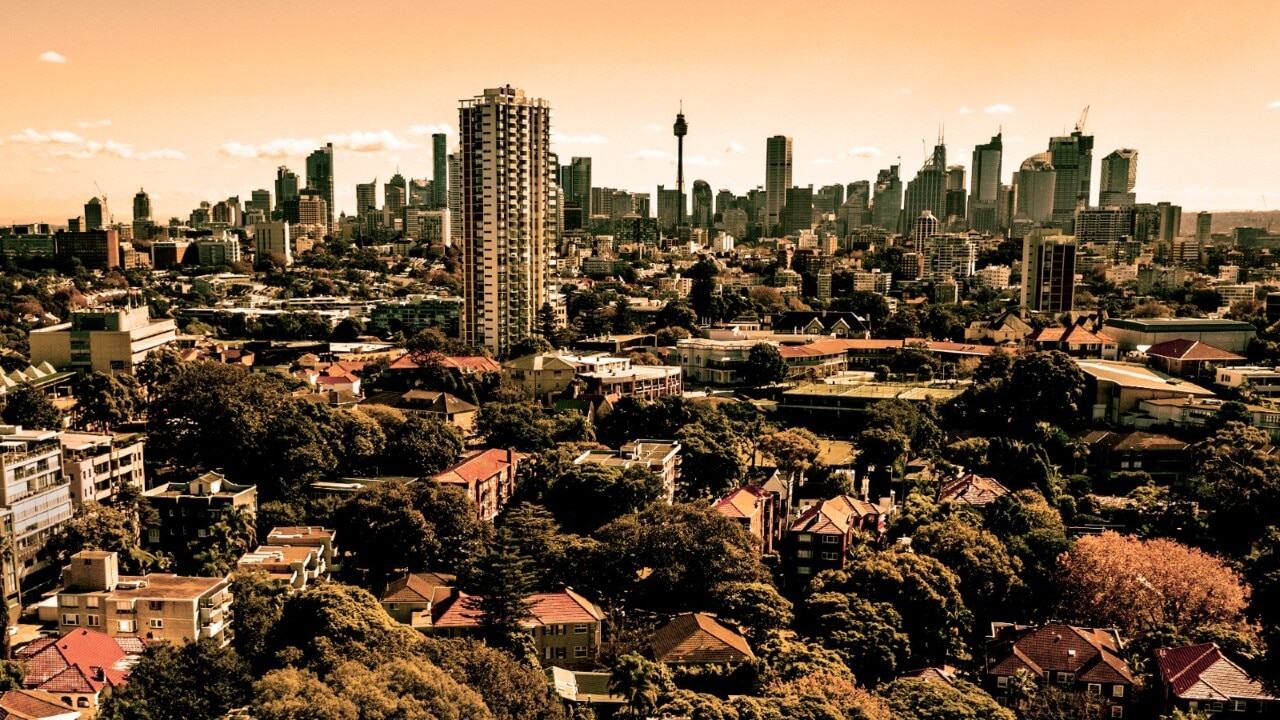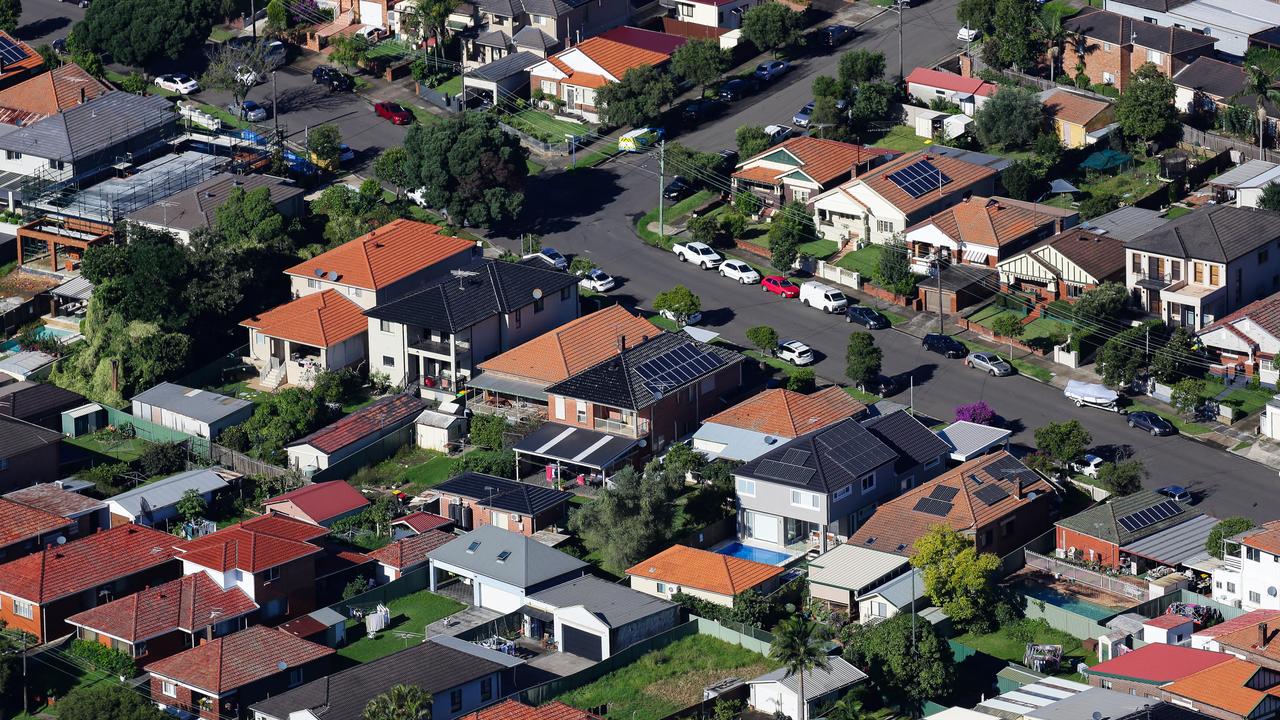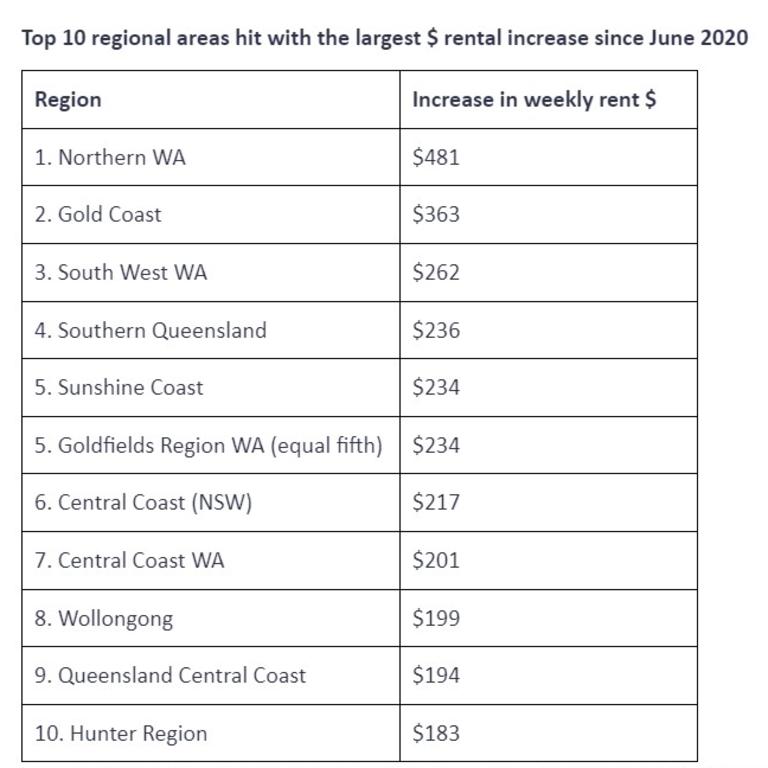Rents across regional Australia increase by $153 a week since June 2020
Data on Australia’s precarious housing crisis has revealed the hot spots where rents are soaring, with some tenants slapped with rises above $350 a week.

Average rents across regional Australia have increased by $153 since June 2020, forcing tenants to scrape together an extra $677 a month or $8000 a year.
The biggest increases were reported in Northern Western Australia where weekly rents had increased by $481.
Vacancy rates slumped to 1 per cent in May this year, with 196 rentals on the market.
Tenants in Queensland’s Gold Coast were also paying on average $363 more per week since June 2020, and South West WA rents had soared by $262 a week.
The analysis was revealed by Everybody's Home ahead of its final hearing of the People’s Commission into Australia’s housing crisis.
Queensland and Western Australia were both over represented in the top 10 regional areas that faced the highest rental increases, with NSW’s Central Coast, Wollongong and Hunter Region respectively reporting $217, $199, and $183 weekly jumps. The three areas came in at sixth, eighth and 10th on the list.

Commissioner and former Labor senator Doug Cameron said the huge price increases reflected the extent of Australia’s housing dilemma.
“Every corner of Australia has been impacted by the housing crisis in one way or another – from Aboriginal and Torres Strait Islander and remote communities to regional and disaster-affected areas,” she said.
“We need decision-makers to implement solutions that work for all people of this vast, wealthy country no matter who they are or where they live.”
Everybody’s Home spokeswoman Maiy Azize said people in regional areas had been overlooked by “decades” of government failures that had resulted in escalating rents.
“It’s no surprise that regional areas right across Australia have been slammed by exorbitant rent rises over the past few years,” she said.
“The People’s Commission has heard consistently from people about the need to build social housing and wind back investor tax handouts to ease this housing crisis for all Australians.”

Commissioner and University of Sydney housing expert Nicole Gurran said First Nations communities were being especially impacted due to failures in supply.
“A lack of affordable and decent housing is driving overcrowding in First Nations communities, increasing the cost of housing in once affordable regional areas, and means more people become displaced when a disaster strikes in their home town,” she said.
“Having grown up in Lismore, I’ve witnessed just how out of reach housing costs have become and how finding a home becomes all the more precarious when floods hit.
“It’s so important for the People’s Commission to hear from those living in regional, remote and First Nations communities first hand about their experiences and solutions that will work for their people and regions.”
Previously startling research from Everybody’s Home found Australians struggling with rising housing costs had resorted to reducing their energy use and skipping heating and cooling their homes (52 per cent) and skipping doctors appointments and other essential check-ups (45 per cent).
Nearly one in three people were also skipping meals (32 per cent), and 39 per cent of more than 1500 survey submissions said they had reduced vehicle usage to cover ballooning rents and mortgages.



